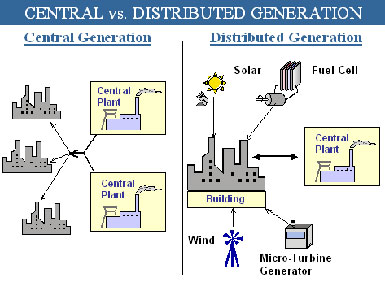Arizona Public Service (APS) is the utility that began the war with the solar industry by undercutting crucial net-metering incentives. Therefore, we’re surpised to hear they are starting to use a technology that gives us insight into how our future decentralized grid may operate.
In New York’s prescient new policy, utilities will act as coordinators and aggregators of a decentralized grid, rather than deliver energy from central sources.
And using advanced solar inverters, APS is beginning to move in that direction. The goal is to operate rooftop solar systems remotely, turning them into "power plants." By using advanced inverters, they can ramp up or curtail electricity flowing into the grid based on customers’ real-time energy needs.
APS has started installing advanced inverters and is collecting data remotely that will help it better understand and manage the energy flowing in neighborhoods across the state.

Inverters are installed with solar systems – they convert electricity produced from direct current (one-way flow of energy) to alternating current (two-way flow), which matches the current on the electric grid. Advanced inverters can be controlled remotely.
"Energy used to flow in one direction, from our power plants to a customer’s home or business. That is no longer true today," says Scott Bordenkircher, Director of Technology Innovation at APS. "With the deployment of distributed generating resources like rooftop solar, energy now flows back and forth on the grid. Advanced inverters will help us better manage the grid – for the safety of our crews working on the power lines, and so customers can continue to receive reliable electricity."
Last year, APS started the Solar Partner Program, enlisting 1500 customers to host rooftop solar systems. APS pays them $360 a year to rent their roof for 20 years. They also install the advanced inverters currently being tested.
Another interesting variant on sharing distributed energy avoids a utility altogether: First Peer-to-Peer Solar Network Forms in Brooklyn, NY
